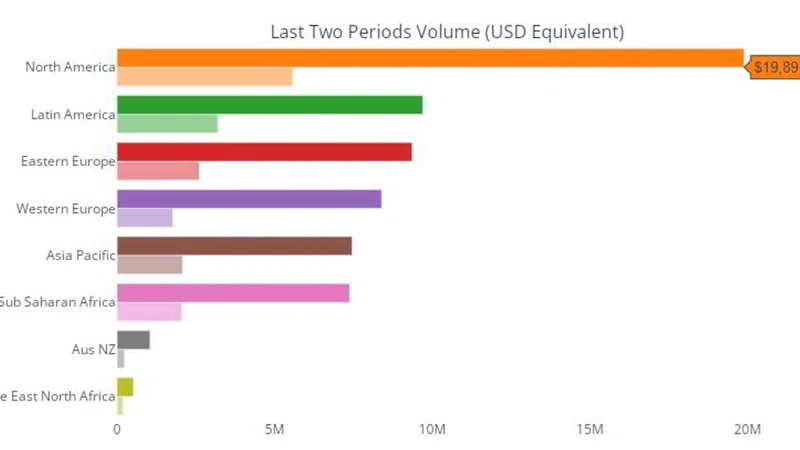Yesterday’s deadline of October 31st signalled a change for the UK’s financial services industry. By now, firms’ boards should have set implementation plans setting out how they will comply with new Consumer Duty and be able to prove these plans are “deliverable and robust to meet the new standards”.
The Duty requires financial services firms to “focus on supporting and empowering their customers to make good financial decisions” and “avoid foreseeable harm”, as well as delivering good outcomes throughout every stage of customers’ journeys.
In a speech delivered at the Financial Services Summit in September, Sheldon Mills, Executive Director, Consumers and Competition, at the FCA, said: “The Duty will be a significant shift in what we expect of firms. It means making lasting changes to culture and behaviour to consistently deliver good outcomes.
“It means putting customers in a position where they can make informed decisions; where they are presented with suitable products and services for their individual needs; and where they receive fair value for those purchases. The duty will require all firms, whether designing, selling or advising on products and services, to put their customers’ needs first.
Tackling “foreseeable harm” will require more form-filling, hassle and exclusion from the mainstream financial system for people with thin credit files and non-traditional incomes. Open Finance is an elegant solution to this problem.
Firms that understand how to unlock the power of consent-based data sharing will also be able to both demonstrate compliance with the Duty and enjoy the many benefits of understanding their customers’ needs and financial context. To help the industry understand the implications of the Consumer Duty and the role Open Finance can play in its implementation, Open Banking Excellence (OBE) gathered a panel of Open Banking, Open Finance, and Open Data pioneers at a Campfire chaired by Carmen Reichman, Multimedia Editor of FTAdviser, to discuss the new rules.
Helen Child, Founder of OBE, said: “The Consumer Duty puts customers in control - which is also one of the bedrocks of Open Banking. The consumer’s voice will now be heard by the very people with the desire, resources and data to drive forward product innovation.
"The Duty has the potential to accelerate the growth of Open Banking, Open Finance, and Open Data. It is hugely exciting and a phenomenal opportunity for us all.”
Open Possibilities
Moneyhub, the market-leading Open Data and payments platform, is one of the most prominent advocates of Open Finance as an enabler of Consumer Duty compliance.
Samantha Seaton, Moneyhub CEO, said: “Consumer protection laws go back thousands of years and were designed to ensure that stolen goods were not being traded, unsafe foods were not being sold, or that customers are not being short-changed by weights and measures.
“Today, we have come to expect consumer protection against sharp practice. Financial services is a market where the buyer often knows far less than the seller, so Consumer Duty regulations will help to make sure that any regulated product provider knows their customer as well as they know their products and ensure they do their utmost to ensure that no foreseeable harm will come to customers.
“That requires a lot more knowledge than we typically rely upon in relation to prospects and customers. Using an Open Finance platform like Moneyhub opens up data and allows the customer to disclose their situation, vulnerabilities and needs at the point of sale and in an ongoing manner in a way that is secure, private and convenient for both customer and seller. Open data will open up possibilities.”
Engagement and Compliance
Vaughan Jenkins, Business Development Director at Moneyhub, described the Duty as a “paradigm-shift towards outcome-focused regulation” but warned that there is “a difference between awareness and readiness”.
A recent Deloitte survey found that 52% of wealth and asset managers had not yet started to prepare to implement the new rules. In a separate survey, EY found that 87% of firms need to “implement key technology changes to deliver on the Duty”, but 64% are “not confident” that this will be completed by the April 2023 deadline.
“Any response to this regulation will be poorer for not incorporating Open Finance,” Vaughan said. “Open Finance liberates data for the benefit of the customer themselves. As we’ve seen with Open Banking, the confluence of GDPR and Open Finance creates interesting opportunities for providers to create beneficial new products based on consumer consent.”
“Informed consumers are one of the preconditions for a healthy market. In some respects, we get the regulation and the legislation we deserve because some firms have preyed on the asymmetry of information in the market for so long. The FCA is not saying consumers shouldn't be responsible for their actions but is saying that sometimes they can't actually act in an informed way because of the obfuscation in the market, which means they don't really get a fair run at making informed decisions.”
Open Finance allows firms to demonstrate compliance with the Duty and ensure good outcomes. Companies that understand how to use data are likely to accelerate ahead of their competitors, benefiting from compliance and improved customer satisfaction.
Tony Crane, Founder of Crane Consulting, said: “The firms that have got access to the best data and have the best relationship with their customers are going to be the ones who will have a better chance of evidence and suitability throughout the term. They are also likely to build better products because they will understand the additional features and flexibilities typical customers might want. If you deliver the Consumer Duty well, you can change lives.”
Collaboration and Competition
In the UK, the government said Open Banking “remedies” have been “important in opening up competition in retail banking and supporting the growth of UK fintech”. It has also driven collaboration between diverse players in the ecosystem. This spirit of collaboration will be important as the industry starts to work toward complying with the Consumer Duty.
Jill Jackson, CEO of The Big Exchange, said: “Some of the industry will start from zero with implementing the Duty. So, there are definitely challenges there. Hopefully, they can look to other peers in the industry and collaborate because we’re all trying to get to the same place and achieve better outcomes for customers. Getting people more people engaged with the products on offer is a huge opportunity.”
Fulfilling the Consumer Duty’s requirements will enable an increased appreciation of customers’ needs and the chance to build products that respond to their exact requirements and financial situation.
Carl Wallis, Compliance & Risk Director at Sesame Bankhall Group, said: “There will be an increase in understanding and knowledge. I think that can only be a good thing. For advisors, I think it’s an opportunity to demonstrate and recognise the value of the advice that firms can provide.”
Craig Hamilton, Group Director, Conduct & Compliance, at Phoenix Group, gave this advice to firms preparing for the Duty: “Define what good outcomes are for you and your customers, whether you are a company with millions of customers or a sole trader, because the FCA won’t do that for you. This lets you take control of the narrative, which is very important.”
Discover why the Consumer Duty is an Open Data opportunity and read Vaughan Jenkins’ blog on Consumer Duty and the Value Exchange











